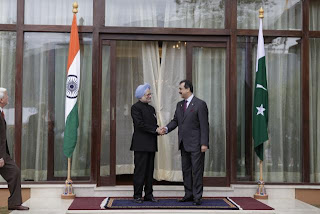 Dhaka, May 21, 2010 (SANS Correspondet):
Dhaka, May 21, 2010 (SANS Correspondet): Bangladesh and Russia signed a 5-years Framework Agreement on Cooperation in the Field of the use of Nuclear Energy for ‘Peaceful Purposes’ Friday.
‘Architect Yeafesh Osman, State Minister for Science and ICT, on behalf of the Bangladesh government signed ‘Framework Agreement on Cooperation in the Field of the Use of Nuclear Energy for Peaceful Purposes’ for a five-year term with possible tacit extension every five years, while Sergey Kiriyenko, signed on behalf of the Russian government.’ A release sent by of Ministry of Foreign affairs, (MoFA) Bangladesh mentioned.
Foreign Minister Dipu Moni, who held talks with Russian Foreign Minister Sergey Lavrov in Moscow, witnessed the signing ceremony. Lavrov expressed his government’s full support for establishing nuclear power plants in Bangladesh. Both the Foreign Ministers expressed satisfaction over the signing of the agreement.
‘Both the countries agreed that the signing of the ‘Agreement’ would be followed by the subsequent ‘inter-governmental agreements’ on technical and financial aspects,’ said the release of MoFA.
After signing the deal, Sergey Kiriyenko, Director General of the Russian State Atomic Energy Corporation (Rosatom) told, ‘by signing the agreement, now Russia is ready to help Bangladesh to make use of nuclear technologies for peaceful purpose, as well as in the field of generating electricity.’ He added, both the countries will establish a Joint Coordination Committee to control the implementation of this agreement. The committee will hold its meetings on an ‘as-needed basis’in Russia and Bangladesh alternately, said Sergey Kiriyenko.
‘According to the agreement, the Parties shall assure the transfer of materials, technologies, equipment and services for implementation of joint programs in the field of the use of nuclear energy for peaceful purposes.’ said in the release. It added, ‘the agreement also provides for cooperation in the areas of prospecting and developing uranium and thorium deposits, nuclear fuel cycle services, including supplies of nuclear fuel to power and research reactors.’
The document regulates issues of disposal of Russian nuclear fuel waste, handling radioactive waste and maintaining nuclear and radiation safety. MoFA release said, ‘the Russia and Bangladesh will cooperate in the area of physical protection of nuclear materials and will take joint emergency actions.’
Chief of Rosatom, Sergey Kiriyenko, who is also the former Prime Minister of Russia (March 23 to August 23, 1998 under President Boris Yeltsin), expressed Russia’s ‘full support and commitment’ for establishing nuclear power plants in Bangladesh. He added, ‘A high-level delegation from Russia will visit Bangladesh soon to take forward next steps in implementing the Rooppur Nuclear Power Plant Project.’
The release said, As per the agreement, the future cooperation between the two countries would include, among others, (i) design, construction and operation of nuclear power and research reactors; (ii) Nuclear fuel supply, taking back the spent nuclear fuel and nuclear waste management; (iii) personnel training and capacity building for operation and maintenance of the Plants; (iv) Research, education and training of personnel in the Russian Federation in the field of the use of nuclear energy; (v) development of innovative reactor technologies in accordance with IAEA safety requirements, nonproliferation of nuclear weapons and environmental protection; and (vi) exploration and mining of uranium and thorium deposits.
Dr. SM Saiful Hoque, Bangladesh Ambassador to the Russian Federation, Md. Abdur Rob Howlader, Secretary, Ministry of Science and ICT, AFM Gousal Azam Sarker, Director General (Europe and EU), Dr. Farid Uddin Ahmed, Member, Bangladesh Atomic Energy Commission, and Dr. Mohammad Shawkat Akbar, Project Director of Rooppur Nuclear Power Plant Project, were present at the signing ceremony.
Bangladesh side requested the Russian authorities to assist in establishing two Nuclear Reactors with the capacity of 1000 MW each.
BDST: 2035, May 21, 2010
AKR/




















